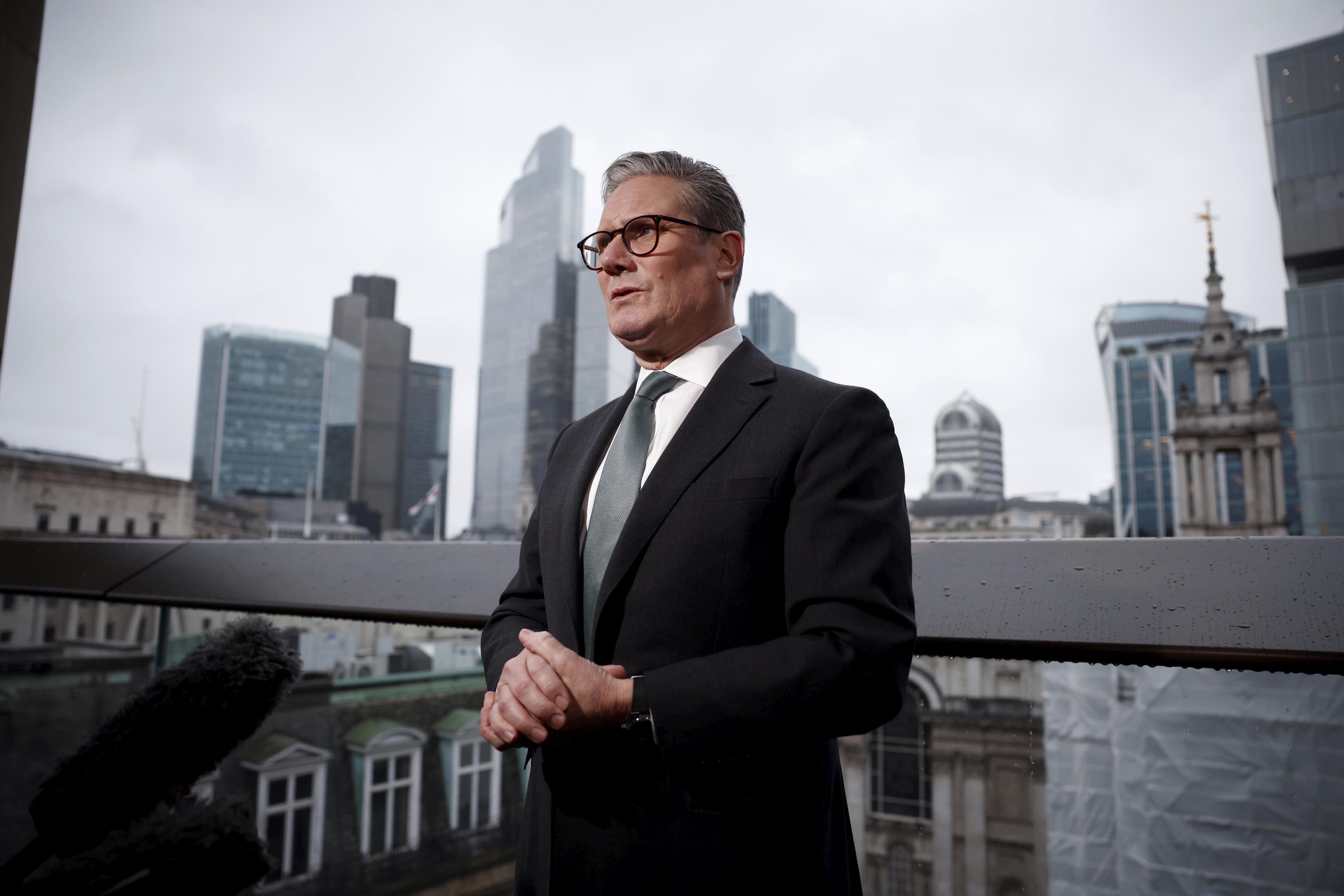That is what the island in the Chagos Archipelago occupies, Diego Garcia, named after the navigator from Huelva, Diego García de Moguer. Although for the US Navy, its name is different: "The footprint of freedom." Because Diego Garcia is the largest US airbase in the Indian Ocean. From there, the B-52s that bombed Afghanistan and Iraq took off. Tony Blair even allowed the Americans to use it as a secret prison to torture Al Qaeda prisoners.
Last October, the British Labour government of Keir Starmer reached a preliminary agreement with the government of Mauritius to hand over the Chagos. Only Diego Garcia would remain under British control for 99 years, after which it would be transferred to Mauritius. The Biden administration welcomed the agreement. The Trump administration did not.
For Washington, 99 years are not enough. Additionally, Mauritius is close to China, so the prospect of Chinese fishing vessels spying on US strategic bombers is not pleasing to the US. As a result, negotiations between London and Mauritius will continue, but now with a third party: the US.
The anecdote of Diego Garcia encapsulates the key question in the relationship between London and Washington: Is the special relationship between London and Washington part of the foundations of the existing world order since the Second World War that Donald Trump is now dismantling?
Britain obviously wants the relationship to remain as special as ever. And it has some cards to play. The military cooperation between the two countries is very close. The nuclear warheads of British atomic submarines - which have a worrying tendency to explode as soon as they are launched - are American. One of the world's largest defense manufacturers - and American - is the British BAE. The Aukus defense agreement reached in 2021 by US, UK, and Australia is the quintessence of the kind of military pact that Trump likes: without constraints, between sovereign nations, and without the need for oversight by the respective countries' legislatures.
In addition, there is British participation in the Five Eyes electronic espionage network, which also includes US, Canada, Australia, and New Zealand. But even that network is now in jeopardy. The new CIA director, John Ratcliffe, has offered voluntary departures to each and every member of that agency. And the appointment of a Vladimir Putin admirer like Tulsi Gabbard to the National Intelligence Director position could make those allies reluctant to share information that the US could send to Moscow or use to favor the far right in any European country, including Great Britain.
Keir Starmer has offered himself as a bridge between the US and European allies, for which he has appointed Peter Mandelson as ambassador to Washington, also known as the Prince of Darkness, for his Machiavellian character, which he demonstrated abundantly when advising the also Labour leader Tony Blair.
However, what can Starmer and his Machiavelli offer to Trump? "That is the question," explains Matthias Matthijs, from the US Council on Foreign Relations think tank. "Trump's people do not detest Britain as much as the EU. This indicates that the special relationship between the UK and the US will be a bit more special than what the US will have with the EU. But in the realm of realities, it is not clear what that can translate into, especially because London has very little to offer Washington."
For starters, there is something that Trump is directly targeting Starmer on: tariffs. With tariffs of 20% on British products, the UK's GDP growth could be reduced by one point. That would be a fatal blow to the British Prime Minister, who has based much of his administration on increasing the country's growth.
And then there are the personalities. "Trump is not interested in relations with political leaders who follow the institutional tradition of their countries. He prefers charismatic types in states with few control systems. This makes his chemistry with Starmer not good," says Stan Veuger, from the liberal think tank (in the classical liberal sense, positioning it as an anti-Trump Republican) American Enterprise Institute. Veuger agrees with Matthijs that "for Britain, it is currently good not to be in the EU because it avoids the worst wrath of Trump."
So, Starmer wants to be a bridge. But a bridge between whom? Does one of the two sides - the US - want that bridge to exist? At the same time, Washington's protectionism will force Britain to get closer to the EU - "to regain markets that it will lose on the other side of the Atlantic," explains Matthijs - even though that does not imply, by any means, a partnership agreement. Britain wants to be a transatlantic bridge. Perhaps, given the circumstances, it is more beneficial for it to be a tunnel through which discreet travel occurs between darkness, always with some leaks and a permanent risk of flooding.
